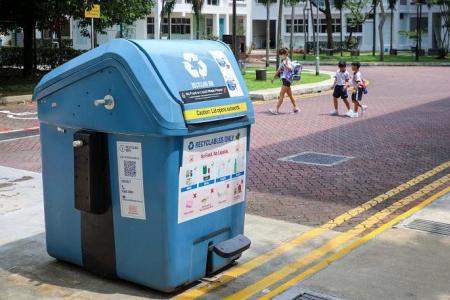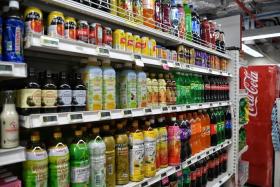More households recycling in 2023 than in 2021
More households are recycling, according to a survey by the National Environment Agency (NEA), which found that 72 per cent of households recycle in 2023, up from 64 per cent in 2021.
The survey of 2,180 respondents, conducted from April to June 2023, also found that more respondents were aware of the common items that can be deposited into recycling bins and chutes.
Some 89 per cent of respondents were aware that a rinsed shampoo or detergent bottle can be recycled, compared with 71 per cent in 2021.
But for plastic film, a new item introduced in the 2023 survey, only 34 per cent of respondents were aware that this form of flexible packaging can be recycled.
Compared with 2021, there was a decline in the awareness that unwanted fruit or vegetable parts, soiled plastic food containers, and small electronic appliances cannot be deposited into recycling bins or chutes.
In 2023, 89 per cent knew that unwanted fruit or vegetable parts cannot be recycled, 2 percentage points down from 91 per cent in 2021. Regarding soiled plastic food containers and small electronic appliances, it was 74 per cent and 53 per cent respectively, compared with 79 per cent and 55 per cent in 2021.
When items that cannot be recycled – like food or liquid waste – are thrown into recycling bins or chutes, contamination arises. This causes the actual recyclables that are soiled with food or liquid to have to be disposed of, incinerated and landfilled.
Under the national Zero Waste Masterplan and Singapore Green Plan 2030, Singapore aims to achieve a 70 per cent overall recycling rate by 2030. But the domestic recycling rate in 2022 fell to 12 per cent – the lowest in more than a decade.
Get The New Paper on your phone with the free TNP app. Download from the Apple App Store or Google Play Store now


